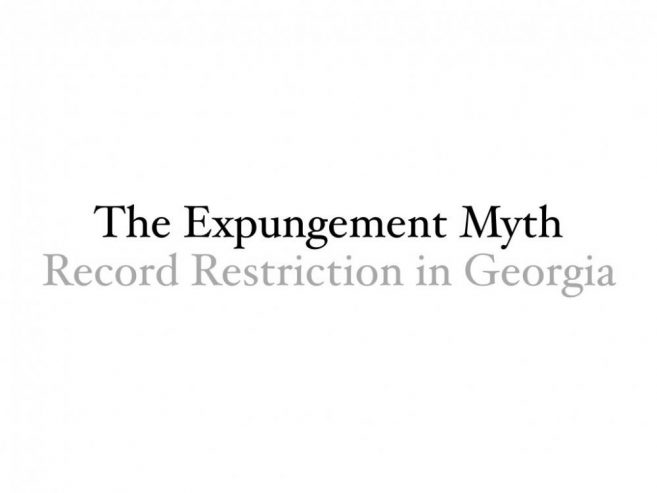City of Atlanta Municipal Court has the PTIT program (also known as “diversion”) – which is critical to the efficient resolution of thousands of tickets each month. In many instances, PTIT is an excellent way to resolve a traffic ticket in Atlanta municipal court.
PTIT stands for Pre-Trial Intervention – Traffic.
Individuals eligible for PTIT are offered the opportunity to opt-in at their first court appearance (also referred to as a traffic court arraignment). If you opt-in, your case is transferred out of the original courtroom and added to the PTIT calendar.
Usually, the court sends you to the PTIT office, where they hand you a few forms to fill out while you wait to meet with one of the PTIT administrators. Be prepared to wait patiently. This process can take a while depending on the volume of participants and the number of people they have working that day.

Once it is your turn to speak with the administrator, she will tell you what you will need to do to complete PTIT. Usually, this is not a negotiation. The penalty normally consists of a fine payment, a defensive driving class, or both. And you will need to complete the assigned tasks to earn your dismissal.
A traffic ticket that is dismissed through PTIT should not be reported to your driving history, whether you are a Georgia driver or an out-of-state driver. This benefits most drivers who would otherwise be facing a reportable traffic offense that could increase insurance rates or lead to other licensing concerns.
Keep in mind that participants are only allowed to enroll in PTIT once per year. This rule creates a disincentive to waste PTIT on an offense that is already non-reportable. So, for instance, if an officer cites you for “too fast for the conditions,” it should already be non-reportable. Therefore, if you enroll in PTIT for this ticket, you will not be eligible to use PTIT should you receive another citation in the next 12 months.
Out Of State Drivers

PTIT is great for out-of-state drivers as well as Georgia drivers. You may have been cited for an offense that would normally not be a reportable offense for Georgia drivers. However, if you have an out-of-state license, Georgia reports all offenses to your home state. As a result, a reduction to a non-reportable offense may not provide you the same benefit that a Georgia driver would receive.
For example, if a Georgia driver receives a ticket for driving 14 mph over the speed limit, most attorneys advise you that it is a non-reportable offense. Therefore, if you entered a guilty plea, you wouldn’t have to worry about it appearing on your driving record.
However, if you have a license from another state, Georgia reports this offense to your home state, and it may be reported according to the rules in your home state. However, since PTIT offers a dismissal as opposed to a non-reportable conviction, this option is often very appealing to out-of-state drivers because there is no danger of the offense being recorded on the driving record by the home state.
If you are unsure about whether you are eligible for PTIT, you should contact the court directly at 404-658-6618. The PTIT representative will tell you whether you are a candidate for PTIT and what is required of you.

